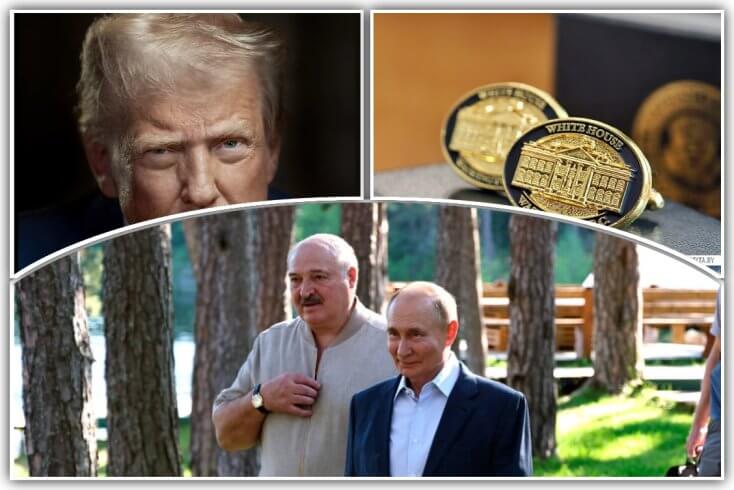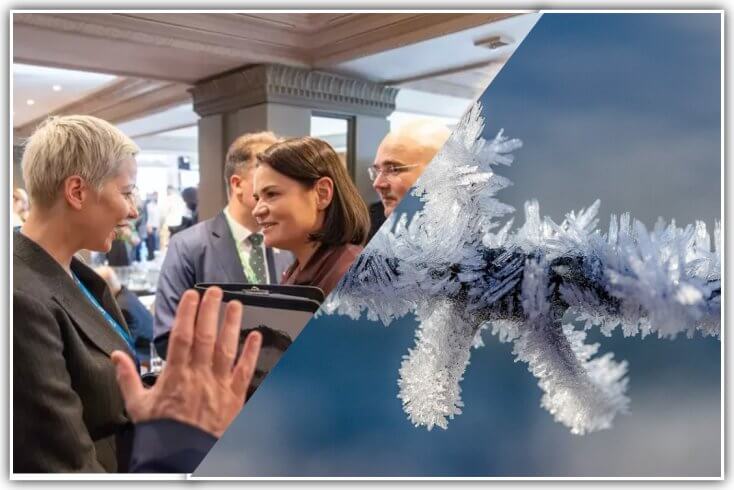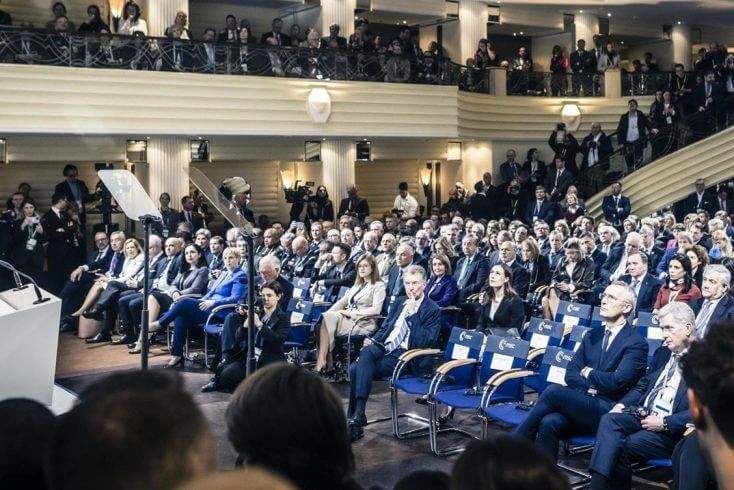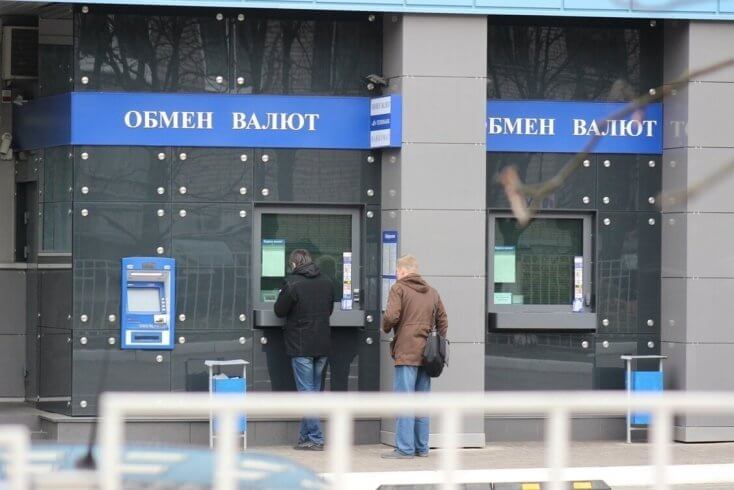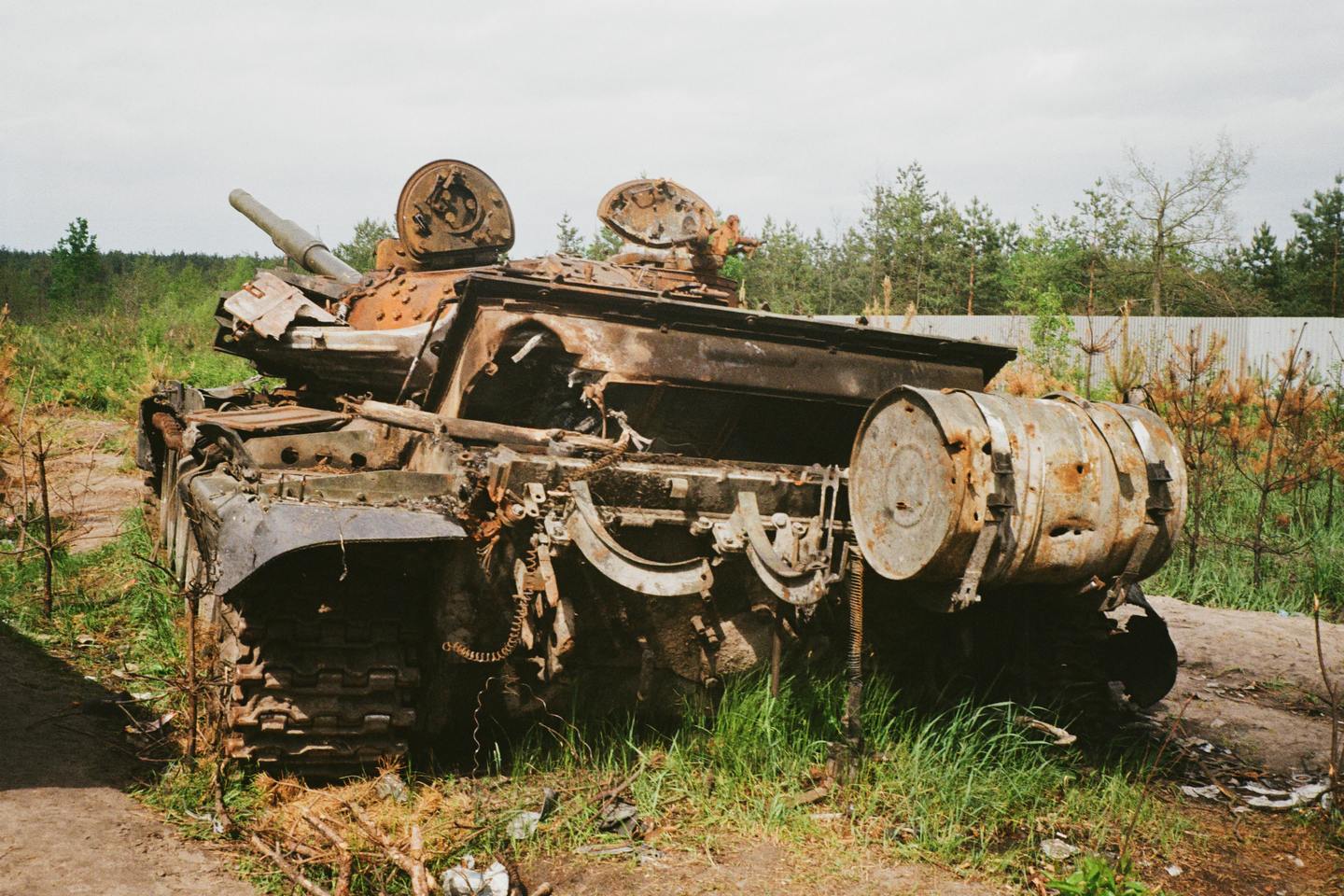
The Russian war against Ukraine was not in the spotlight at the November 23 Collective Security Treaty Organization (CSTO) summit in Minsk. Alaksandar Łukašenka mentioned it only in passing at the top-level meeting and in the last few months, whereas earlier he had come up with many peace initiatives and advocated for an immediate ceasefire. He seems to have gradually lost interest in the issue.
The Belarusian regime has successfully adapted to challenges associated with hostilities in Ukraine and international sanctions, but it is wary of a drastic change fraught with unpredictable consequences.
Łukašenka losing interest
At the CSTO summit, Łukašenka’s called for unity of its members and criticized the “collective West” as a threat, echoing Russian President Vladimir Putin, who speculated about a new “world order.” He made only a brief mention of Ukraine, repeating the Russian claim that Kyiv is selling out weapons supplied by the West.
Several months ago, the Belarusian ruler used every opportunity to call for a cessation of hostilities in Ukraine and to offer himself as a mediator between Kiev and Moscow. During the Ukrainian counteroffensive, he unleashed bouts of fiery anti-Ukrainian rhetoric, claiming that Kyiv was headed for defeat.
Towards the end of the year, as it became clear that the Ukrainian offensive stalled, the Belarusian ruler changed his rhetoric, pushing Ukraine out of the spotlight.
Compromise between Kyiv, Minsk
After Russia’s full-scale invasion of Ukraine, Łukašenka feared that hostilities might spill over into Belarus, and that its army might be forced to join the war on Moscow’s side. Minsk did not rule out the possibility of Western sanctions against Russia being fully extended to Belarus. The autocrat openly pinned his hopes on peacekeeping, which had brought him significant political gains in 2015.
The war, however, took a different course. While in February-March 2022, the Kremlin hoped to achieve its goals with combined arms surprise attacks on Kyiv and Chernigov from Russia and Belarus, using a rapid overwhelming force concentration, now hostilities are taking place in the Donetsk, Zaporizhzhya and Kherson regions. After the Russian offensive on Kyiv failed, Belarus lost its importance for Moscow, and Russia gradually withdrew its troops from the country. Łukašenka’s peace initiatives failed miserably, but his longtime dream of hosting nuclear weapons came true.
During the war, Minsk and Kyiv have made it clear to each other that they were not interested in a direct confrontation. They reached a sort of compromise: Minsk continues to support Russia, but steers clear of direct involvement in the war. The Ukrainian government, for its turn, exercises restraint and does not aggravate tensions.
For instance, Kyiv does not insist on tighter European sanctions against Belarus and the criminal prosecution of Łukašenka although the Belarusian opposition is pushing on the International Criminal Court to issue an arrest warrant for the Belarusian strongman, as it did for Putin last year.
The compromise allows Kyiv to concentrate its military efforts on Donbass and the southern regions, while Minsk does not want to get mired in the war. However, the status quo is extremely fragile given Belarus’ heavy dependence on Russia and the Kremlin’s temptation to employ the Belarusian army.
Ceasefire to pose new challenges for Minsk
Most Western military analysts agree that Ukraine and Russia cannot achieve a clear victory. Given the stalemate on the battlefield, Putin may be seeking to split Ukraine into two, emulating the postwar division between North and South Korea, which remain officially at war to this date.
Such a scenario does not bode well for Łukašenka. Since the beginning of the war, Minsk has cast itself as Moscow’s only loyal ally and partner. During the war, Moscow is particularly interested in the alliance and supports Minsk in every possible way – politically and, above all, economically. The Kremlin’s economic aid has allowed Minsk to mitigate Western sanctions.
A cessation of hostilities might enable Moscow to increase its influence or absorb Belarus.
A break in the war would deprive Lukashenka of an important argument. For domestic audiences, the propaganda, with some success it seems, portrays Belarus as an island of stability in a sea of chaos and wars, whereas for Western audiences it emphasizes that Minsk is not involved in the fighting and is preventing the war from spreading. Once a ceasefire comes, these arguments will immediately lose their significance, and Minsk will be left behind the Iron Curtain one on one with Moscow, which has clearly demonstrated its imperial ambitions in recent years.
If hostilities cease, no significant improvement should be expected in Belarusian-Ukrainian ties. Statements coming out of Kyiv suggest that President Volodymyr Zelensky and his circle are determined to take revenge on Minsk for its betrayal in February 2022.
However, they are postponing retaliation for tactical reasons. In the future, Belarus will face billion-dollar lawsuits for its participation in the war against Ukraine, and some Ukrainian politicians are already raising the issue of future reparations. Kyiv will eventually support the demands for an arrest warrant for Łukašenka.
* * *
Minsk is more interested in the status quo, which allows it to receive virtually unlimited support from Russia, find common ground with Kyiv, and even hope for a possible thaw with the West. The end of the war would give rise to risks and challenges that could undermine the Belarusian regime.
